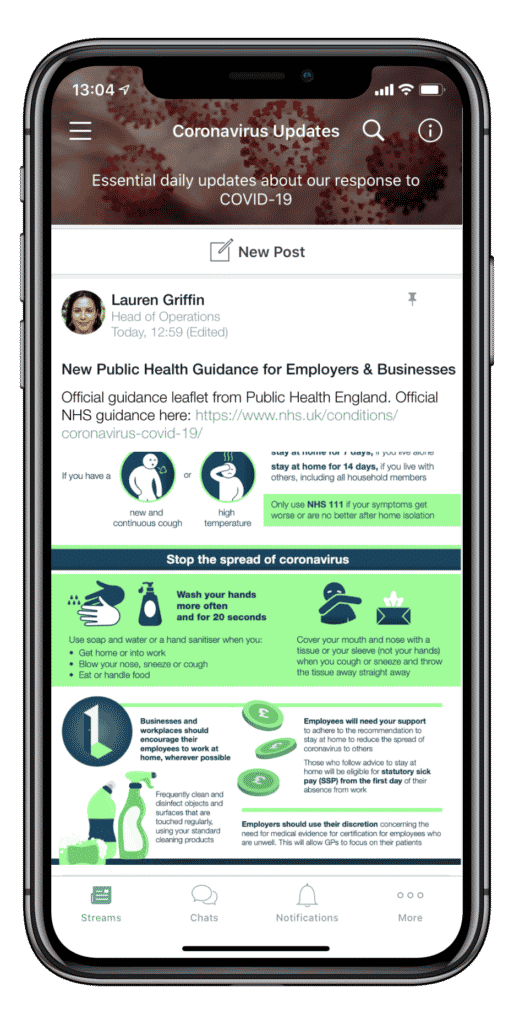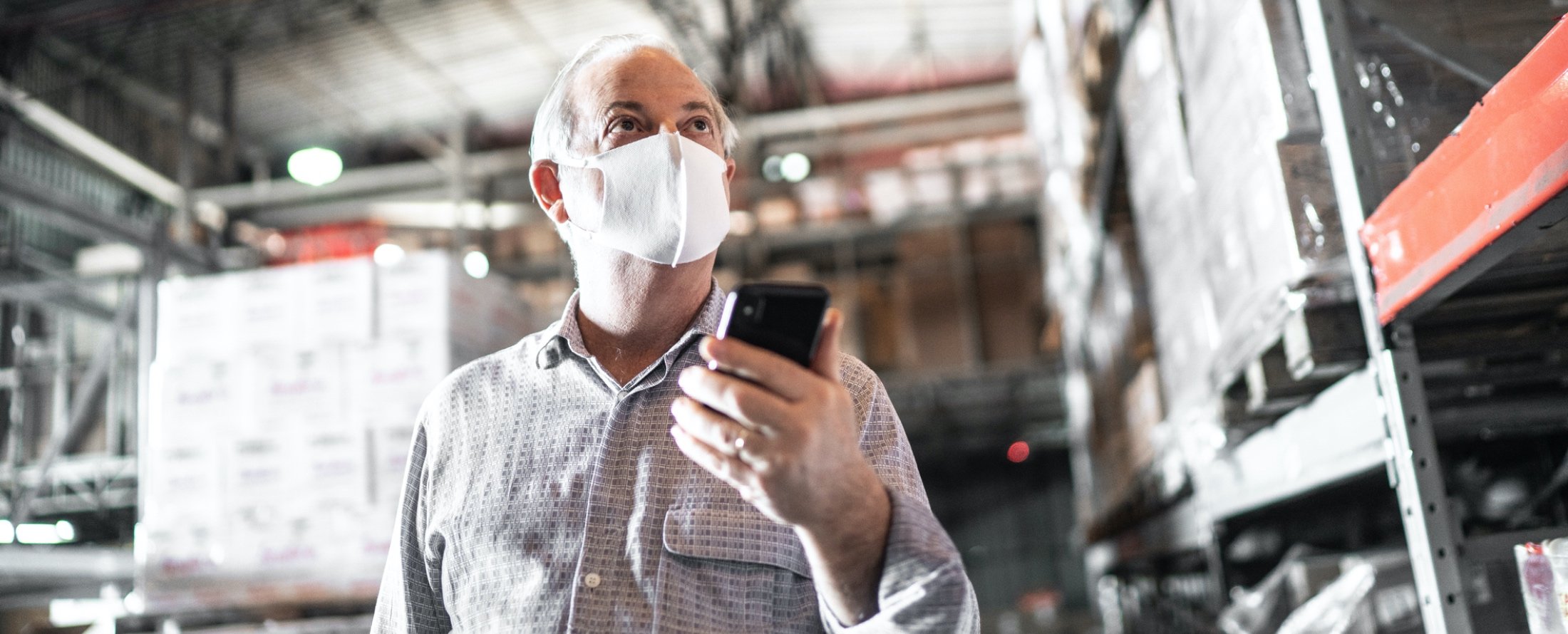2020 was a year like no other. A global pandemic. Lockdowns. Civic unrest. While the world was put on pause, companies were forced to quickly reset and pivot entire business strategies practically overnight in order to survive during this historic crisis.
Throughout 2020, the entire team here at Beekeeper worked closely alongside our customers to support them as they’ve navigated the challenges they’ve come up against in the new normal. What we discovered is that every one of them has shown incredible resilience and resolve as they fought to keep their workforce unified during this challenging time.
With a real-time communication platform already in place, many of our customers were able to successfully pivot and adapt to the ever-evolving situation while also keeping their workers safe through endless uncertainty.
We learned so much from our customers during this time that we wanted to share these business insights we learned during COVID with others. To that end, here are the top five lessons we learned from our customers on how COVID has impacted their operations.
1. Increased Cross-Functional Effort to Accelerate Digitization of Frontline Workforces
Within days of the global economy grinding nearly to a halt, the world recognized that frontline workers are indeed essential workers.
As social distancing became a necessity and workforces became more dispersed, companies had to quickly find a way to connect their entire organization to limit workflow disruptions, maintain productivity levels, and keep essential employees safe on the job.
Companies responded to these operational challenges by championing their frontline teams and accelerating workforce digitization with mobile-first communication tools. This race to accelerate digitization resulted in a cross-functional organization effort, driven by leaders, IT, Operations, and Communications teams.
2. Rapidly Changing Information Drove Further Digitization Beyond Internal Communication
Throughout this pandemic, business leaders have grappled with keeping their companies operational, while ensuring the safety of their workforces. COVID-19 continues to come in waves, forcing certain businesses to constantly update their safety policies and procedures to comply with evolving government regulations.
Companies had to find a way to share all this new information immediately with their entire organization. Having a real-time, mobile-first communication platform has provided the infrastructure for our customers to keep every worker up to date on evolving policies and procedures in this ever-changing business landscape.

Companies relied on Beekeeper’s operational features to manage their communication and make information available anywhere, anytime. Some of the features we heard the most about include:
- Frontline managers who relied on Confirmation Campaigns to make sure everyone is reading mandatory safety messages.
- Document libraries have become a must-have resource for companies to share updated standard operating procedures.
- Surveys and daily questionnaires have allowed companies to get immediate feedback directly from their essential workers.
- Companies are easily uploading videos to share messages from company leadership and revised training protocols.
“This past year, I’ve been so inspired by all the ways our customers have used Beekeeper to reach their employees with consistent and accurate information fast, rather than waiting for critical information to filter down through general managers and team leads.”
– Cristian Grossmann, Beekeeper CEO and Co-Founder
3. Immediate Need to Streamline New Operational Processes
As our customer pivoted their operating strategies, they’ve had to develop new methods for streamlining processes. That means moving paper-based tasks over to a digital format to maximize efficiency and eliminate the need for employees to manually handle paper, reducing the number of touchpoints between themselves and their co-workers. With Beekeeper, these companies have been able to seamlessly digitize paperwork and processes without skipping a beat.
Beekeeper’s new operational suite, the COVID-19 Forms Template Package, has helped our customers coordinate communication with every employee. For example, many businesses use digital files to manage PPE inventory, daily health screenings, and questionnaires. Digitizing simple, day-to-day functions allows companies to increase efficiency during extenuating circumstances.
Discover how IRP Meat & Seafood Co. Connected With Their Frontline Workforce During COVID-19
4. Digitization to Improve Workforce Coordination
Companies with frontline workers have often relied on in-person meetings to relay information between workers. But when gathering together was no longer an option, managers needed a way to keep everyone on the same page, engaged, and productive.
Our customers have used Beekeeper to manage logistics with their teams, like:
- Coordinating break times
- Staggering and splitting up the workforce
- Shift schedules
- Sharing safety regulations with an entire workforce
5. Companies are Doubling Down on Operational Efficiency and Increasing Focus on ROI
In 2021, companies are looking to the future and beginning to design their recovery strategies to rebuild operations and recover lost revenue.
Companies are realigning their approach to doing business by adopting lean operation management principles. Leaders are finding areas where wasteful spending occurs and improving processes to become more cost efficient.
Streamlining workflows and reducing overhead is a top priority for businesses in 2021.
Embracing a leaner operations model supports business agility, allowing our customers to focus on the essentials of their operation. When companies needed to accomplish those tasks faster than usual, Beekeeper created a 48-hour rapid rollout option, enabling customers to quickly onboard to our mobile platform. We saw record activation rates as frontline teams were eager to connect.
We saw how COVID-19 accelerated the digitization of the frontline workforce. As a result, our customers have become more agile and resilient in the face of this global crisis. That digital commitment to frontline workers will remain critical to companies as they begin the road to recovery in 2021.





